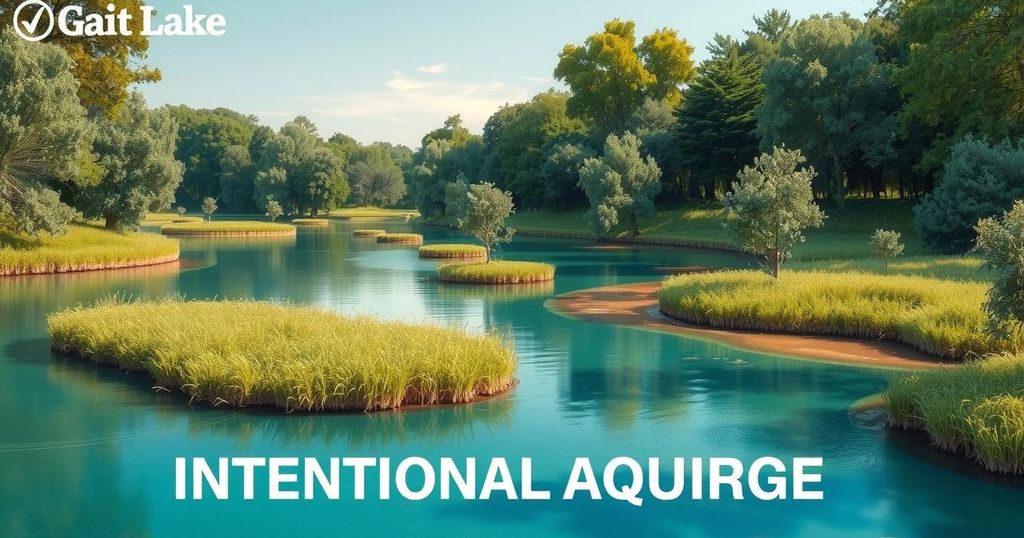Bolatito Adele-Bolaji, an environmental expert, underscores the importance of Managed Aquifer Recharge (MAR) in addressing Nigeria’s water shortages. She highlights challenges faced by government agencies, low public awareness of environmental issues, and the brain drain impacting the availability of environmental experts. Effective strategies include improving working conditions for professionals and implementing sustainable water management practices to ensure equitable access to resources. Water privatization offers potential benefits but poses access challenges, necessitating regulatory frameworks to protect vulnerable populations.
Bolatito Adele-Bolaji, an environmental expert with extensive academic credentials, focuses on research that addresses water management challenges in Nigeria, particularly through methods such as Managed Aquifer Recharge (MAR) and Aquifer Storage Recovery (ASR). She highlights that inflating demand for potable water, compounded by population growth, has led to the overexploitation of groundwater, raising concerns of contamination and saltwater intrusion. By exploring flooding as a potential resource for aquifer recharge, Adele-Bolaji underscores the opportunities for enhancing sustainable water management practices in the region.
The environmental protection agencies in Nigeria grapple with significant challenges largely due to climate change, witnessing harsher weather patterns that complicate management efforts. The enforcement of existing environmental regulations remains inadequate, contributing to ongoing ecosystem degradation. Practices such as improper waste disposal and illegal dumping elevate carbon footprints, which adversely affect public health and socio-economic stability. The urgent need for stricter compliance to environmental laws is emphasized as a vital measure to combat these issues.
Public awareness regarding environmental issues in Nigeria is gradually improving, but a considerable gap remains between urban and rural regions. Limited access to educational resources hinders rural communities’ understanding of environmental impacts stemming from cultural and economic constraints. There is a noted need for amplified public sensitization programs designed to increase knowledge of sustainable practices and the consequences of environmental degradation, which are crucial in mitigating challenges associated with urbanization and flooding.
Adele-Bolaji’s research is directly applicable to Nigeria’s ongoing environmental challenges. Implementing innovative strategies such as rain gardens and permeable pavements can effectively enhance groundwater replenishment while addressing flooding issues. These techniques are vital for sustainable water management, demonstrating the importance of responsible stewardship in water resource utilization, particularly during periods of surplus.
The shortage of environmental experts in Nigeria poses ongoing challenges, as many qualified professionals seek opportunities abroad, resulting in a brain drain. This disparity diminishes the country’s capacity to address critical environmental issues effectively. Although dedicated professionals remain, their insufficient numbers fail to meet the growing demands faced by Nigeria in environmental management.
To reverse the trend of skilled professionals leaving Nigeria, a multipronged approach is necessary. Enhancing working conditions, providing competitive salaries, investing in education, and facilitating career development opportunities are crucial steps to retain talent in the field. Additionally, creating a supportive policy environment that fosters local capacity building can help secure the nation’s environmental future.
While Nigerian leaders are increasingly informed about global environmental challenges, the adaptation of these solutions to local contexts necessitates ongoing struggles. Effective implementation of environmental policies is often hindered by weak enforcement and limited resources. Collaborative efforts among experts and policymakers, as well as sustained commitment from political leaders, are essential to bridge the gap between policy and actionable change.
The discourse surrounding water privatization raises both opportunities and implications. While it could lead to enhanced efficiency in water management, there are serious concerns over accessibility, particularly in rural areas. To ensure equitable access, any privatization efforts must be paired with stringent regulatory measures that protect disadvantaged populations and maintain affordable water services.
Bolatito Adele-Bolaji advocates for sustainable water management practices in Nigeria, highlighting the urgent need for technologically innovative solutions to combat water shortages and environmental degradation. Addressing Nigeria’s environmental challenges involves enhancing public awareness, retaining skilled professionals, and establishing effective policies to manage resources sustainably. Water privatization presents both opportunities and concerns, necessitating careful consideration to ensure that all communities have access to essential water services. By fostering collaboration among experts and policymakers, Nigeria can develop effective strategies to mitigate its pressing environmental issues.
Original Source: tribuneonlineng.com




